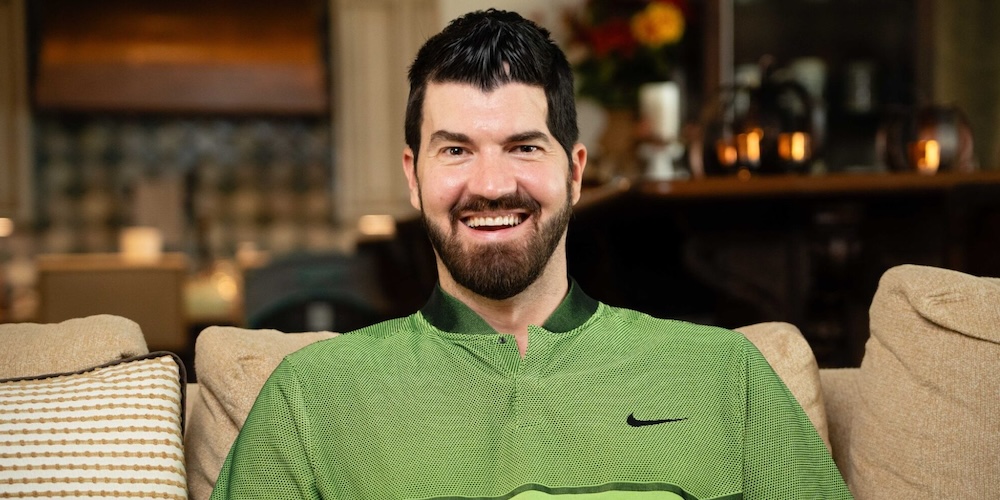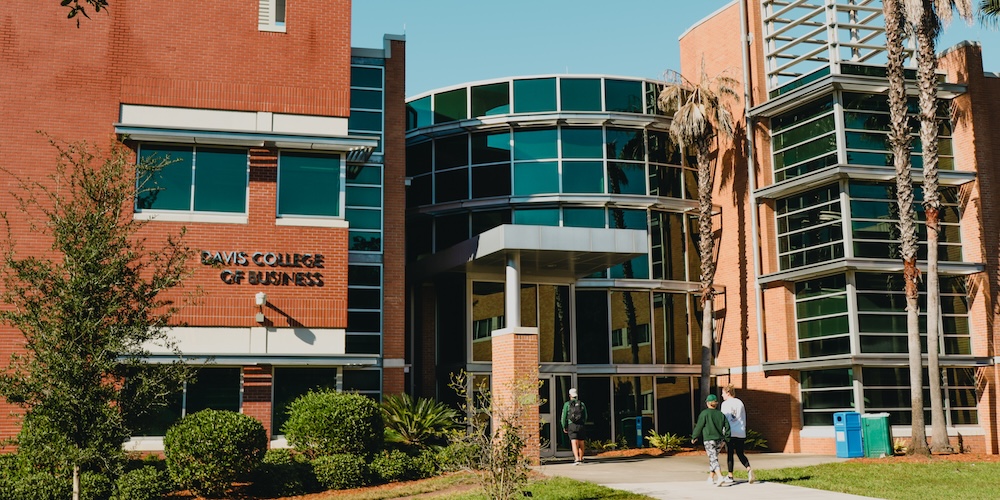Dr. Whitney George, Assistant Professor and an original faculty member of Jacksonville University’s Clinical Mental Health Counseling Program stands among some of Jacksonville’s brightest young leaders. They innovate, serve, create, imagine, launch, enterprise, and blaze the way forward—and they’ve done it all before the age of 40.
Recently recognized as a Jacksonville Business Journal 40 Under 40, Dr. George was humbled by the unexpected honor. “Several of my 2018 Leadership Jacksonville colleagues were also recognized. But looking at their accomplishments, I didn’t consider myself contributing at the same level. I don’t see myself as doing enough.”
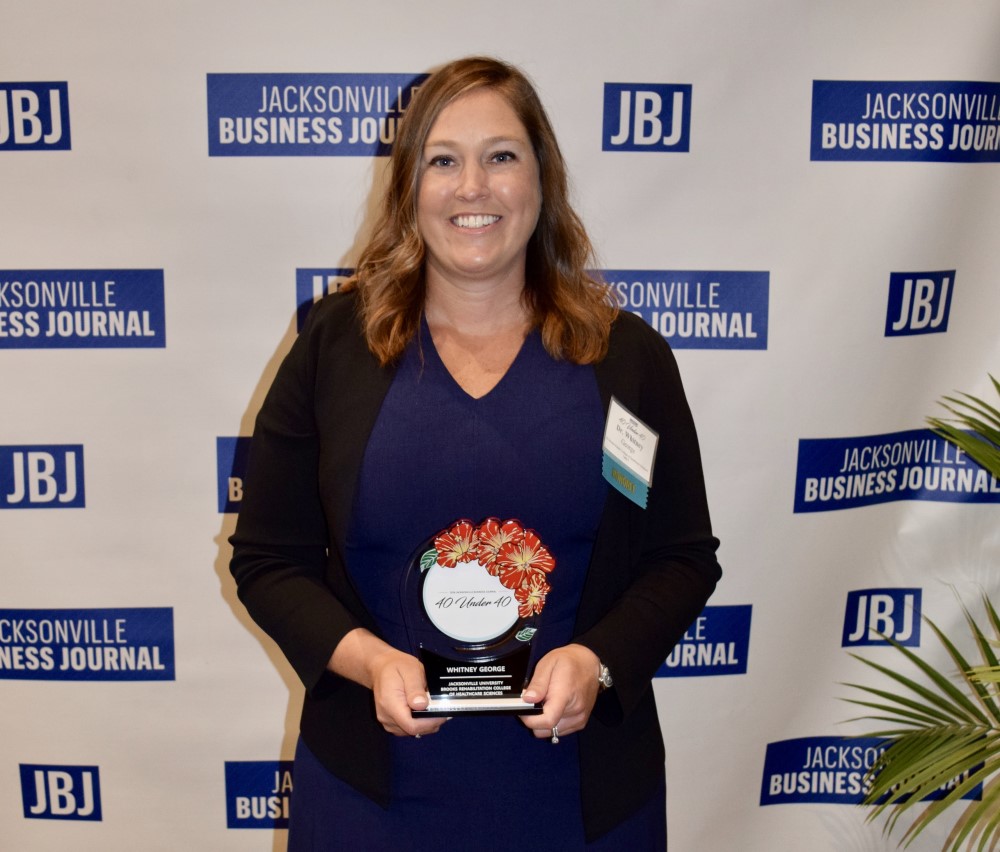
But lives changed, investments made, and milestones achieved tell a different story—one of a highly-committed and caring individual. And much of her drive and innovation happens on the JU campus.
The Scholar
Originally from Pensacola, Florida, Dr. George double-majored in psychology and glassblowing. From Tulane University in New Orleans, she entered a master’s program in counseling psychology at Boston College.
Her first internship experience was in one of the highest-need environments in Massachusetts– the medical center of a federal prison. “Assigned to the sex offender rehabilitation unit, I provided therapy to offenders. In doing that type of work, you learn a lot about yourself as a professional.”
After graduating from Boston College, Dr. George continued her work at the University of Florida. There, she completed back to back programs, earning her dual Master of Education in Counselor Education and Education Specialist degree and her Ph.D. in Counselor Education. During that time, she discovered her passion for working in geriatrics. She chose to specialize, earning certifications in Geriatric Care Management and Gerontology.
As part of her doctoral work in 2007, she provided four months of volunteer medical service in Africa. In Botswana, Namibia, and South Africa, Dr. George worked with children whose primary caregivers were lost to HIV/AIDS. “That experience helped shaped who I am as a professional and a human being. It was life-changing.”
Not only did the experience impact her personal life but also informed her approach to teaching. “The educational experience, and internships, the opportunities to travel as a student, develop skills with multiple populations, and really find that passion through service, is how it happened for me.”
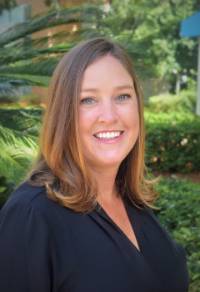
She met her husband while in Gainesville. “He was in law school and I was finishing up my Ph.D. He later took a job in Jacksonville and we’ve been here about ten years. It has been a great home for us.”
Joining the JU faculty in 2015, she helped establish JU’s growing Clinical Mental Health Counseling Program. Today, she teaches in the classroom and oversees all accreditation and curriculum, as well as the student journey from start to finish. Her JU pride shines bright and she isn’t shy about touting the University as an ideal match.
“I was in private practice for some time and had a difficult time with work-life balance. When you’re a mental health professional and managing a clinic, you’re on call all the time for clients. Coming to JU has allowed me greater flexibility. And academia is a wonderful place. One that supports lifelong learning and a positive work environment.”
The Program
Under the umbrella of JU’s Brooks Rehabilitation College of Healthcare Sciences and School of Applied Health Sciences, the Master of Science in Clinical Mental Health Counseling (MS-CMHC) program accepts only 48 students. The 60-credit-hour degree meets all educational requirements for State of Florida licensure as a Licensed Mental Health Counselor (LMHC) and as a Marriage and Family Therapist.
“It’s a growing field, so in that respect, it’s very competitive. It’s always important that students enter knowing that this requires passion and dedication. It’s not always pretty. They need to come in committed to underserved populations. And if they’re here for any other reason, then this won’t be a good fit for them.”
Graduate students are also required to complete a 1,000-hour internship during their second year. “Our students are in the community, providing services. We’re partnered with over 40 clinical sites across Jacksonville. We provide services to those as young as three-years-old and up through geriatric populations. The spectrum in terms of age is very broad.”
First-year students Carolyn Smith and Sarah Willson appreciate Dr. George’s unique brand of inspiration.
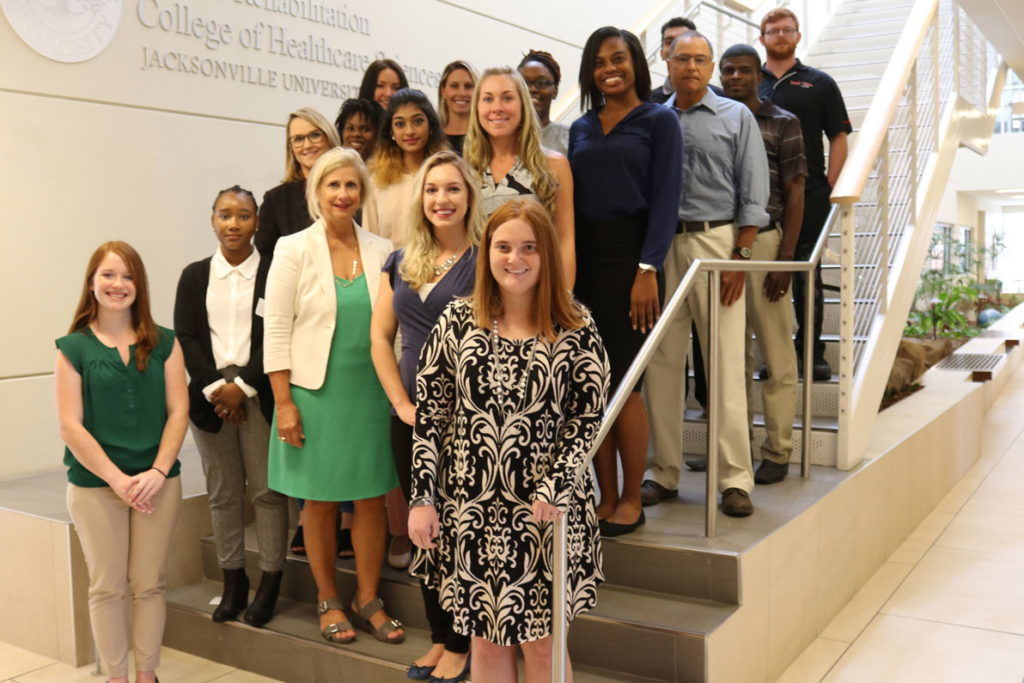
Willson transferred from another graduate program and appreciates the way Dr. George challenged her, particularly in the area of psychopathology. “On a more personal level, my family went through a really difficult time recently and she has been so supportive, both as a director and a professor.”
After graduation, Smith and Willson hope to open a private practice together to provide family therapy to military service members and their families. “From my first impression of Dr. George when I interviewed for the program, she was professional and accessible. Graduate school isn’t easy, but she adapts it and makes the experience less stressful.”
Dr. George credits Dr. Larry Wagner, Dr. Heather Hausenblas, JU Provost Dr. Chris Sapienza, and others who brought her onboard and have helped cultivate the MS-CMHC program from its inception.
The Vision
Florida continues to cut funding in the area of mental health, a reality that motivates Dr. George in her efforts to be a catalyst for change. She describes Florida as having a two-fold problem: decreased funding and increased need.
According to Mental Health America, in 2018 Florida was ranked 33rd for the provision of mental health services but takes the 10th spot for prevalence of mental illness. Out of 67 counties across the state, Duval County was ranked number 42 for quality health outcomes and even lower for services specific to mental health.
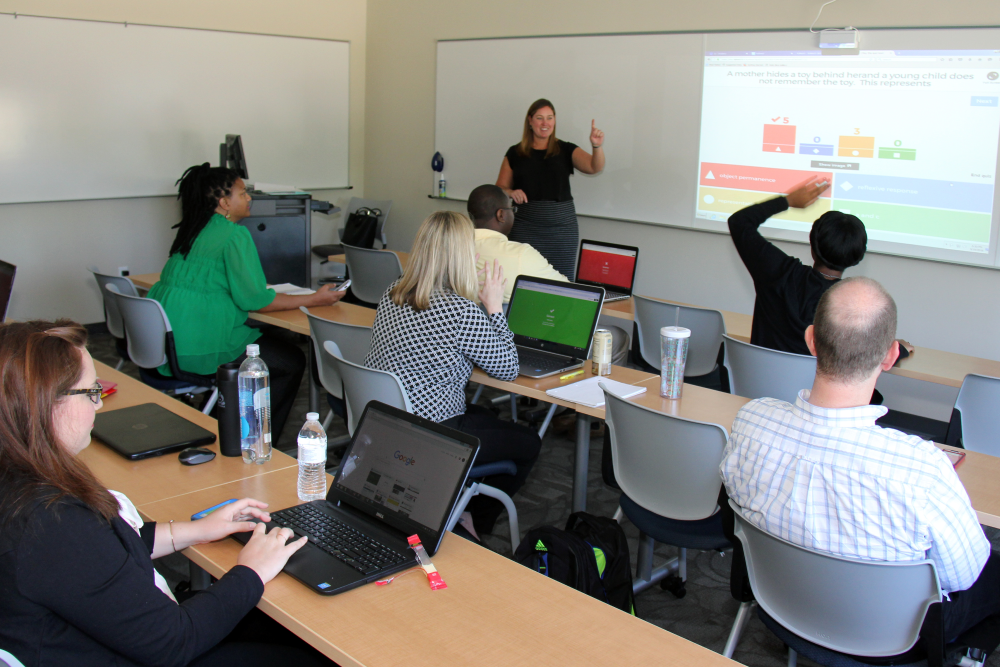
“So we are literally sitting in the place with the most apparent need in the country but with the least amount of funding.” In terms of need, she said, students will find themselves providing care for a wide spectrum of mental health needs, from depression, anxiety, autism, psychosis, adjustment disorders to a rising need for those specializing in obsessive compulsive disorders or play therapy.
Though she is encouraged by one critical factor. “People are starting to talk about mental health differently than they did in generations past. It was stigmatized. Now, people are more willing to admit they need help.”
Dr. George is also a member of the Northeast Florida Mental Health Counseling Association, American Counseling Association, Association of Counselor Education and Supervision and Association of Adult Development and Aging. She is active in the community, providing supervision to those seeking licensure, serving on local boards, and acting as a consultant. Dr. George is an experienced clinician, charged with positive energy and big plans for the future.
She’s dreaming about the possibility of a mental health services clinic on JU’s campus, to serve Arlington and provide students with additional clinical practice. Through grant writing, planning, and finger crossing, she remains hopeful about what the next few years hold for her graduate students.
